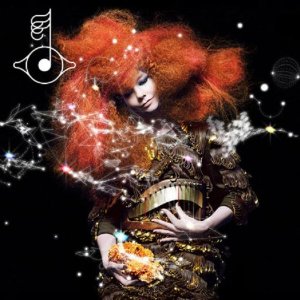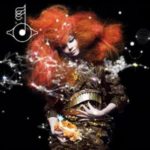
Nonesuch
For her seventh proper album in her 20-year career as a solo artist post-Sugarcubes (remember kids, she did put out her eponymous debut back in 1977 at the tender age of 12), Iceland’s singular pop icon Björk Guðmundsdóttir dives headfirst into her Apple to deliver her most ambitious project yet.
Working with a crew of creative minds in music, science, technology and the written word, she has crafted a unique multimedia experience, incorporating iPad/iPhone/iPod apps for each of the 13 songs featured on Biophilia that delve deeper into the themes of cosmic theory and musicology interspersed throughout the material here. However, when you strip away all of the fanfare of the digital bells and whistles surrounding this release, when you listen to this record as you would have in the days before the Internet took over our daily processes of functioning, you have—pound for pound—Björk’s most impressive work since Vespertine.
It’s an album that finds her working with a space station of invented instruments for a concept she calls “Spinal Tap reverse,” including a digitally modified pipe organ, a gamelan-celeste hybrid called the gamelista, a tesla coil bass and these 30 foot tall pendulums made from aluminum that were used to harness Earth’s gravitational pull in order to construct patterns of rhythm. And amidst this veritable sonic sculpture garden, the singer and a host of collaborators, including experimental jazz harpist Zeena Parkins, beat collagist Pablo Diaz-Reixa, the london production tandem 16bit and longtime collaborator Matthew Herbert, conspire an excursion into minimalist pop territory that sets itself apart from anything else in her catalog yet. But at the same time, Biophilia is also a total throwback to the height of her It girl stardom of the late 90s/early 00s, a perfect exemplification behind the reason why she remains the envy of such modern chart toppers like Madonna, Katy Perry and Lady Gaga (all of whom have shamelessly thieved from her when they wanted to get their weird on).
However, as songs like the shimmering IDM lucidity of opening track “Moon” and the jungle-reviving “Crystalline” so deftly prove, Ms. G is the only one who can do it right. And Biophilia, for all its lofty ambitions to bring modern technology closer to the natural environment from which it continually depletes with each disconnecting invention, is just as brilliant as a good old fashioned collection of songs as it is in all of its multinomial splendor.



No Comments comments associated with this post